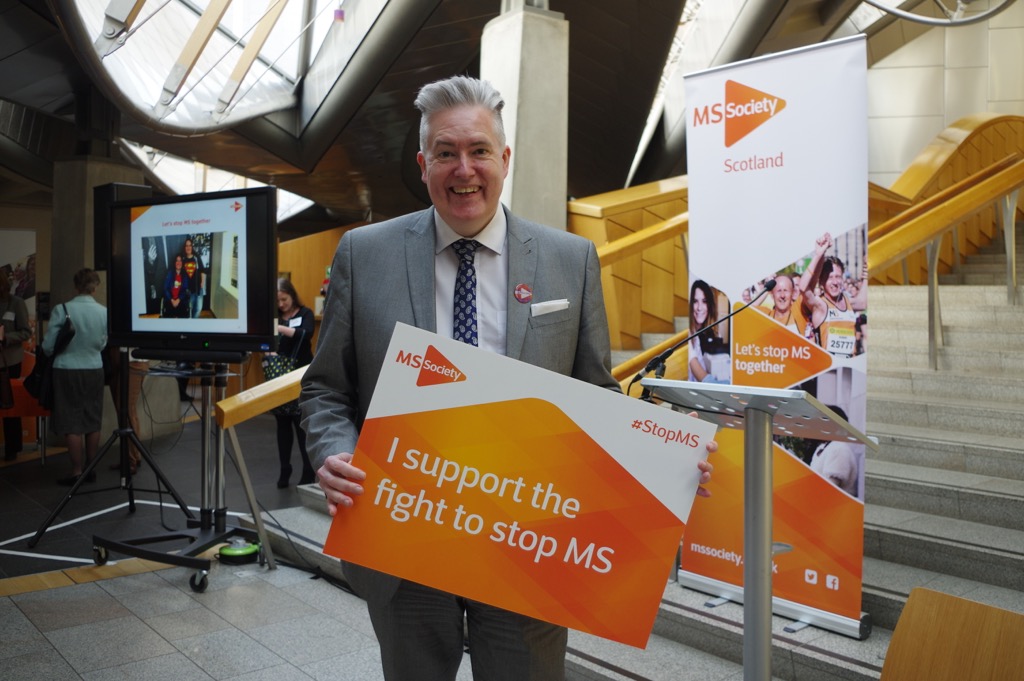Why Is There Only One Casino in Paisley and Is There an Alternative?
April 24, 2019SNP MSP DEMANDS ACTION ON BANK CLOSURES IN PAISLEY
April 24, 2019This Multiple Sclerosis (MS) Awareness Week (22-28 April), MS Society Scotland were in the Scottish Parliament to raise awareness of the important role research plays in the lives of people affected by MS.

MS affects more than 11,000 people in Scotland and can cause problems with how we walk, move, see, think and feel. But the MS Society is driving research into more – and better – treatments.
The charity currently funds 10 research projects in Scotland with the studies receiving over £3.56million over their lifetimes.
MSPs from across the country attended a reception at Holyrood to hear from some of the leading names in MS research and people living with the condition.
MSP for Paisley, George Adam pledged his support for the crucial research being done in Scotland to stop MS.
George said: “MS awareness week is a highlight of mine both politically and personally, and I have had the privilege of sponsoring the events in the Scottish Parliament for a few years now.
“My wife, Stacey, has MS so I understand first-hand the everyday difficulties that face those with the condition. Simply, research is vital for both those living with MS and their families and the work done by the MS Society is crucial in the quest for more treatments and options.”
Morna Simpkins, director of MS Society Scotland said: “This MS Awareness Week we are highlighting the importance of MS research.
“For more than 11,000 people in Scotland, living with MS is a daily reality. This is why the MS Society is driving cutting-edge research into more – and better treatments to ultimately stop MS.
“By contributing and joining a global group of fundraisers people can help us find new treatments for people living with the often painful and exhausting condition.”
MS is an unpredictable condition that is different for everyone. It affects how a person thinks, feels and moves. For support and information, please contact the helpline on 0808 800 8000.



